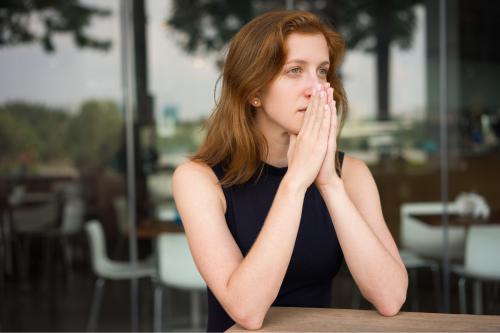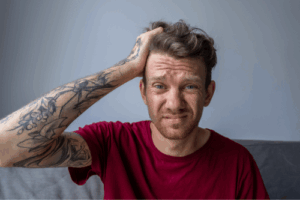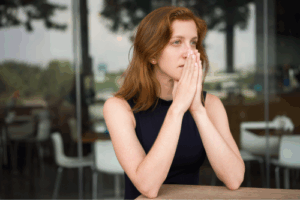Intuition vs Anxiety: How to Tell the Difference
Understanding whether you’re feeling intuition or anxiety can be difficult. Both arise from the mind and can affect thought, behavior, and emotion. But knowing the difference is essential for better mental health and decision-making.
What Is Intuition?
Intuition is often described as a “gut feeling.” It’s a fast, subconscious signal that guides you toward or away from something. Intuition operates with little effort and feels neutral or calm.
It often comes without rumination. There’s no spiral of worry or stress. It simply feels right or wrong.
Your subconscious mind gathers information from your experiences, memories, and environment. Then, it quickly interprets it to produce an instinctive reaction—your intuition.
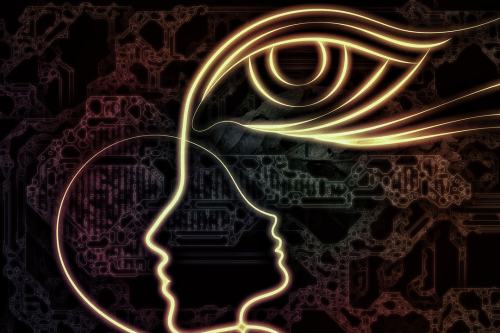
What Is Anxiety?
Anxiety is a mental and physical response to fear, uncertainty, or perceived threat. It feels urgent, tense, and overwhelming.
It is often future-focused, filled with “what if” thoughts and worst-case scenarios. Anxiety grows with rumination and repeated worry.
If left unmanaged, anxiety can evolve into an anxiety disorder. These disorders include generalized anxiety, panic disorder, and social anxiety.
The Psychology of Intuition vs Anxiety
From a psychology standpoint, intuition arises from the subconscious processing of data. It’s usually calm and concise.
Anxiety, however, is tied to the brain’s fear circuitry. It activates the amygdala and triggers a stress response. This affects behavior, increases stress, and creates mental noise.
The feeling of intuition comes from inner wisdom. Anxiety stems from emotional reactivity, often shaped by trauma or unresolved fears.
Key Differences Between Intuition and Anxiety
1. Tone and Urgency
Intuition feels steady and quiet. It doesn’t push.
Anxiety feels loud, panicked, and forceful. It pressures you to act quickly.
2. Emotional Quality
Intuition lacks strong emotion. It’s more like quiet knowledge.
Anxiety is highly emotional. You may feel anxious, restless, or afraid.
3. Body Response
Intuition may show up as a gentle gut reaction or inner knowing.
Anxiety causes racing heart, muscle tension, upset stomach, and shallow breathing.
4. Thought Patterns
Intuition is brief. One simple thought or sense is enough.
Anxiety triggers thought loops and overthinking. It feeds off uncertainty.
Why We Confuse Intuition with Anxiety
People confuse them because both start as a feeling in the body. The gut is involved in both.
High stress levels, past trauma, or a chronic anxiety disorder can distort perception. What once was intuition becomes lost in layers of fear.
Over time, anxiety can dominate your decision-making process. This leads to mental exhaustion and indecision.
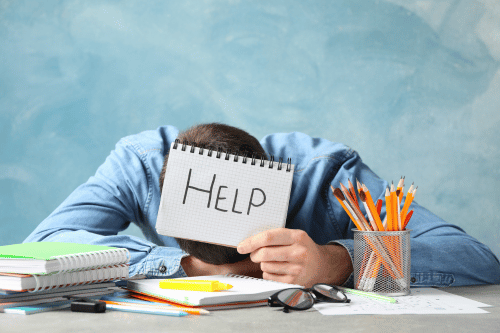
The Role of Experience and Conditioning
Your experience shapes how you respond to emotional cues.
If you’ve been in unsafe situations, your gut feeling may always signal danger. That doesn’t mean it’s intuition—it may be a trauma-based fear response.
In therapy, we often see clients mislabel their anxiety as instinct. This confusion affects trust in decision-making.
How to Identify True Intuition
Ask yourself:
Does this feeling come with panic or stillness?
Am I thinking it over and over again?
Does my body feel relaxed or tense?
True intuition is calm, clear, and without pressure. It doesn’t require repeated checking.
Consciousness plays a role here. By increasing your awareness, you can better separate noise from signal.
How to Manage Anxiety That Mimics Intuition
Start by learning how anxiety feels in your body. Then use calming techniques to reduce its power.
Try these tools:
Therapy: Work with a mental health professional to challenge irrational beliefs.
Mindfulness: Stay present and stop runaway rumination.
Breathwork: Regulate physical symptoms of anxiety.
Journaling: Write thoughts out to spot patterns of fear vs. instinct.
Revival Mental Health in Orange County provides targeted anxiety treatment programs. Our clinicians offer tools to help you trust your inner wisdom again.
Marketing, Information, and Mental Noise
We live in a digital world filled with marketing messages, algorithms, and alerts. This constant flow of information clutters the mind.
It becomes harder to hear intuition through the noise. Increased exposure to ads that provoke fear or urgency makes you more vulnerable to anxiety-driven choices.

Creating mental space is essential. Detox from digital input helps restore inner clarity.
The Role of Consent and Control
Understanding user consent in digital environments matters. Many platforms manipulate attention through fear-based content.
This shifts our emotional baseline to high alert. We then confuse every gut feeling as danger.
Regaining a sense of control over your attention and emotional triggers helps realign with true intuition.
When to Seek Help for Anxiety
If worry impacts sleep, work, or relationships, it may be more than just overthinking. You may be dealing with an anxiety disorder.
Common signs include:
Constant worry or rumination
Avoiding decisions or situations
Physical distress (racing heart, muscle tightness, etc.)
Revival Mental Health specializes in diagnosing and treating mental health disorders. Our clinical programs can help restore emotional balance and trust in your instincts.
Practice Listening to Intuition Safely
To reconnect with intuition, try low-stakes decisions first. Choose a route to work, a meal, or a song based on gut feeling.
Track how it feels before, during, and after. Did you feel calm? Did it feel right without overthinking?
Over time, you build trust in your inner voice. That’s how you reduce anxiety-driven habits.
The Balance of Logic and Feeling
Intuition doesn’t replace logic. But when combined, they strengthen decision-making.
Anxiety narrows focus to worst-case outcomes. Intuition expands awareness.
Healthy decision-making uses consciousness, data, and gut feeling. You don’t have to choose one or the other.
Final Thoughts on Intuition vs Anxiety
The difference between intuition and anxiety lies in the energy behind the message. One empowers. One overwhelms.
When you feel safe and balanced, your intuition becomes more accurate. If you’re overwhelmed or living in stress, anxiety tends to dominate.
If you’re struggling to separate the two, professional help makes a difference. At Revival Mental Health, we help individuals learn how to recognize real instinct from reactive fear.
How Revival Mental Health Can Help
If your mind feels clouded by anxiety, stress, or emotional noise, Revival Mental Health can help you sort through what’s real and what’s reactive. Our licensed clinicians work with you to reduce anxiety symptoms, explore your past experiences, and rebuild trust in your natural instincts and gut feelings.
We offer therapy programs that focus on thought patterns, emotional regulation, and trauma recovery. Whether you’re managing a diagnosed anxiety disorder or struggling to tell the difference between fear and intuition, our approach supports long-term mental health and decision clarity.
FAQ's
1. Can medication affect your ability to feel intuition?
Yes. Some medications for anxiety or mood disorders can dull emotional sensitivity, which may reduce access to gut feelings or instincts.
2. Does childhood trauma affect your ability to trust your intuition?
Yes. Early trauma can rewire the brain’s fear response, making it harder to distinguish between true intuition and anxiety.
3. Is there a link between gut health and intuition?
Yes. The gut is connected to the brain through the vagus nerve, and imbalances in gut health can influence emotion and decision-making.
4. Can anxiety ever be helpful like intuition?
In some cases, yes. Mild anxiety can alert you to real threats, but chronic anxiety disorders often misfire and confuse your mind.
Visit SAMHSA or contact us today for more information.

